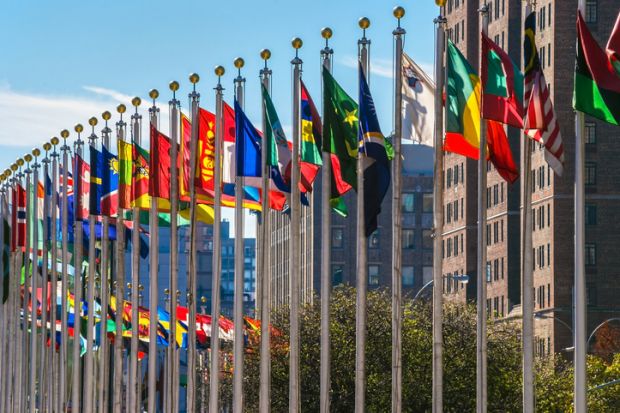The US remains top of a “Soft-Power Index” that shows how many world leaders it has educated, but the UK has closed the gap for the first time.
The league table, published annually by the Higher Education Policy Institute (Hepi) since 2017, counts the number of serving world leaders (monarchs, presidents and prime ministers) educated at a higher level in countries other than their own.
The UK briefly topped the rankings in its first year, before the US overtook it in 2018 and has extended its lead in every subsequent year.
However, the number of world leaders educated in the US has fallen from 67 to 65 over the last year, while the number educated in the UK has grown from 56 to 58.
Hepi said that, as a result of their strong university systems, international connections and use of English as the most common language, both countries had educated a very senior leader of around a quarter of all the countries in the world.
The duo are followed by France (30), Russia (10), Switzerland (7), Australia (6), Italy (6) and Spain (6).
Notable world leaders educated in the UK include King Philippe of Belgium, Hungary’s Viktor Orbán and Emperor Naruhito of Japan.
New editions this year include Czechia’s Petr Pavel, Fiji’s Sitiveni Rabuka, Montenegro’s Jakov Milatović and Slovenia’s Nataša Pirc Musar. Nigeria and Nepal – both of which had previously had leaders educated in the UK – elected new presidents in 2023, neither of whom have any affiliation to UK universities.
The US boasts Israel’s Benjamin Netanyahu and King Felipe VI of Spain as alumni. Its numbers this year were boosted by the addition of the UK’s own Prime Minister Rishi Sunak, who took an MBA at Stanford University as a Fulbright Scholar.
Nick Hillman, the director of Hepi, said: “The number of world leaders educated in other countries reflects the standing of different educational systems and is a good proxy for the amount of soft power held by different countries.
“It is a phenomenal achievement that over a quarter of the countries in the world have a very senior leader – a head of state or prime minister – educated in the UK.”
Mr Hillman warned that recent policy changes in the UK had created a less favourable environment for international students wanting to study at its universities.
“Recent rhetoric from the Home Office and incoming tougher rules on student dependants mean many UK institutions will have to fight harder to maintain their attractiveness to those outside the country,” he added.
The index only counts leaders educated outside their own home countries and partly reflects past trends, given the gap in time that usually exists between someone’s formal education and reaching a top position in their home country.
Register to continue
Why register?
- Registration is free and only takes a moment
- Once registered, you can read 3 articles a month
- Sign up for our newsletter
Subscribe
Or subscribe for unlimited access to:
- Unlimited access to news, views, insights & reviews
- Digital editions
- Digital access to THE’s university and college rankings analysis
Already registered or a current subscriber? Login








